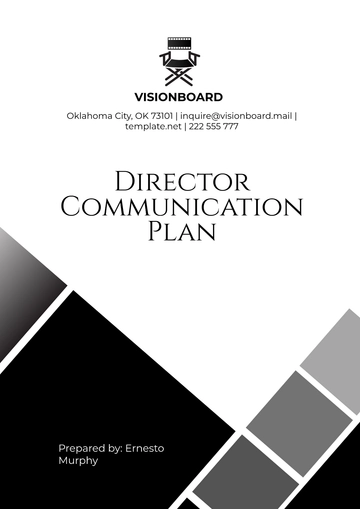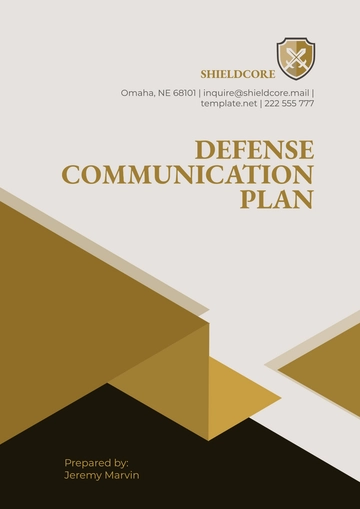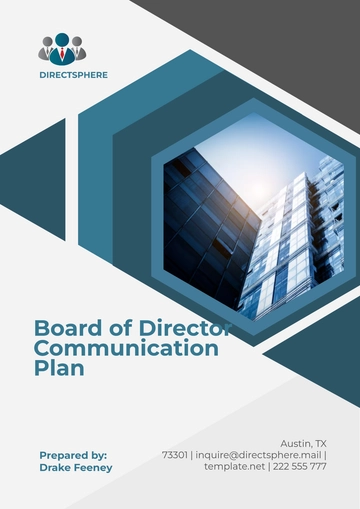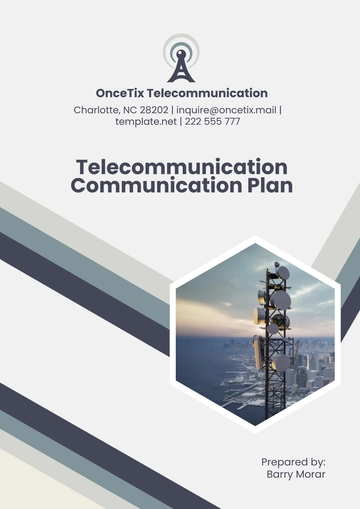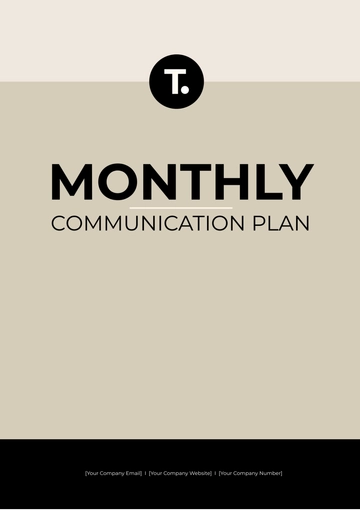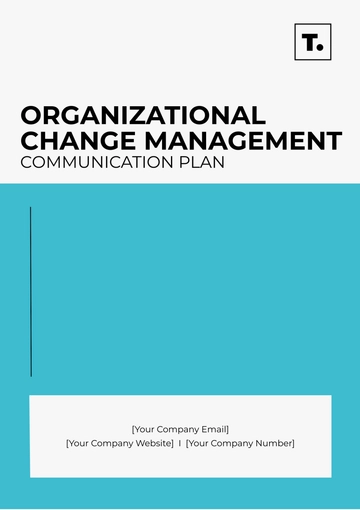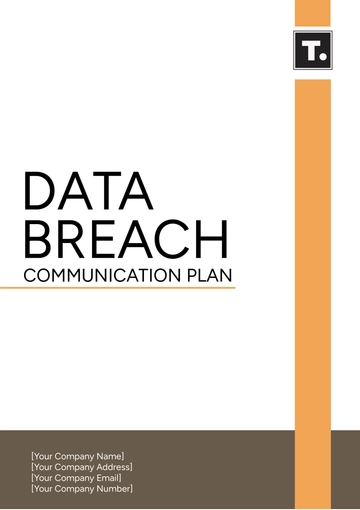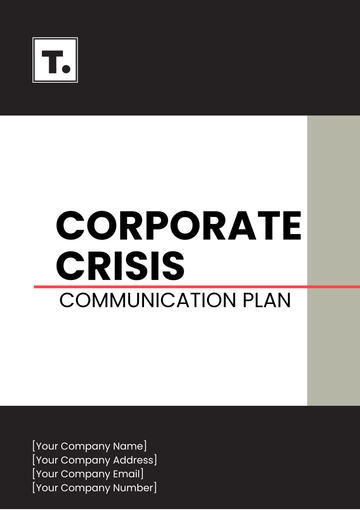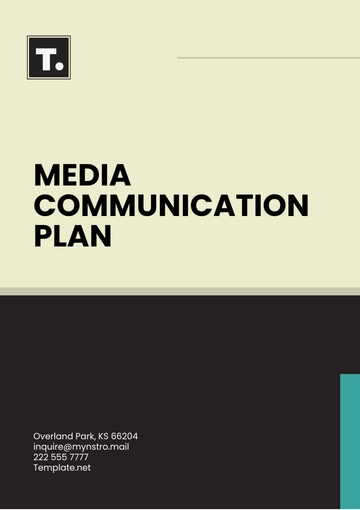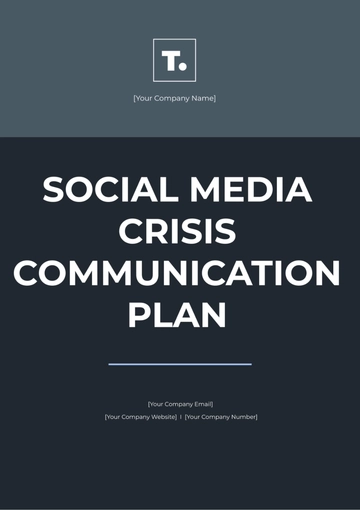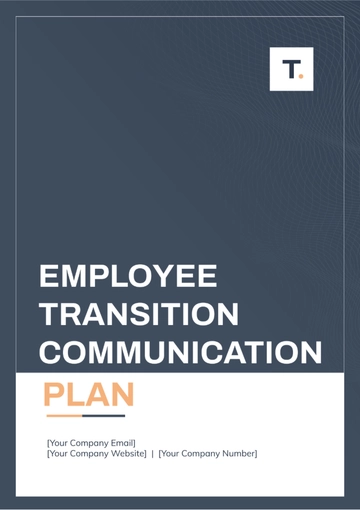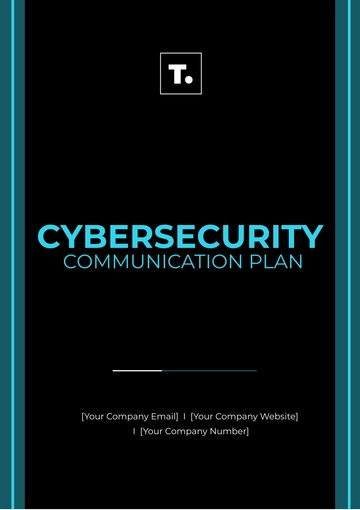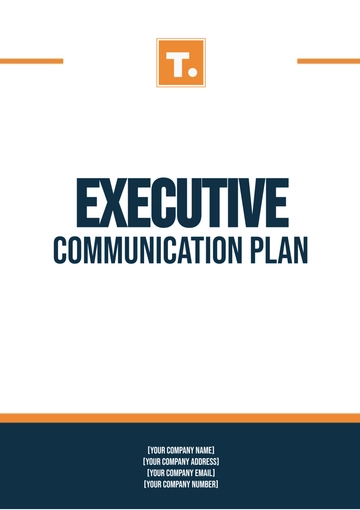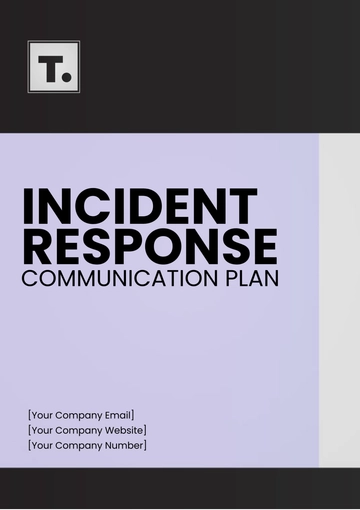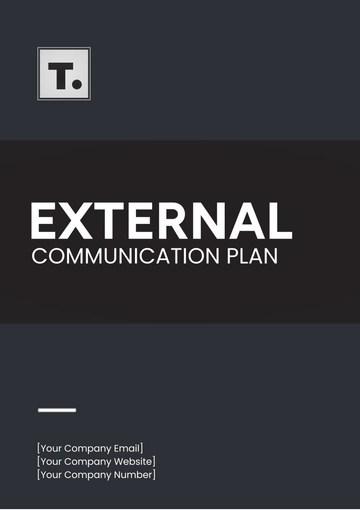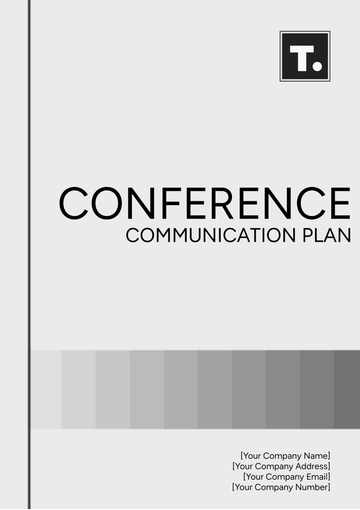Free Risk Communication Plan
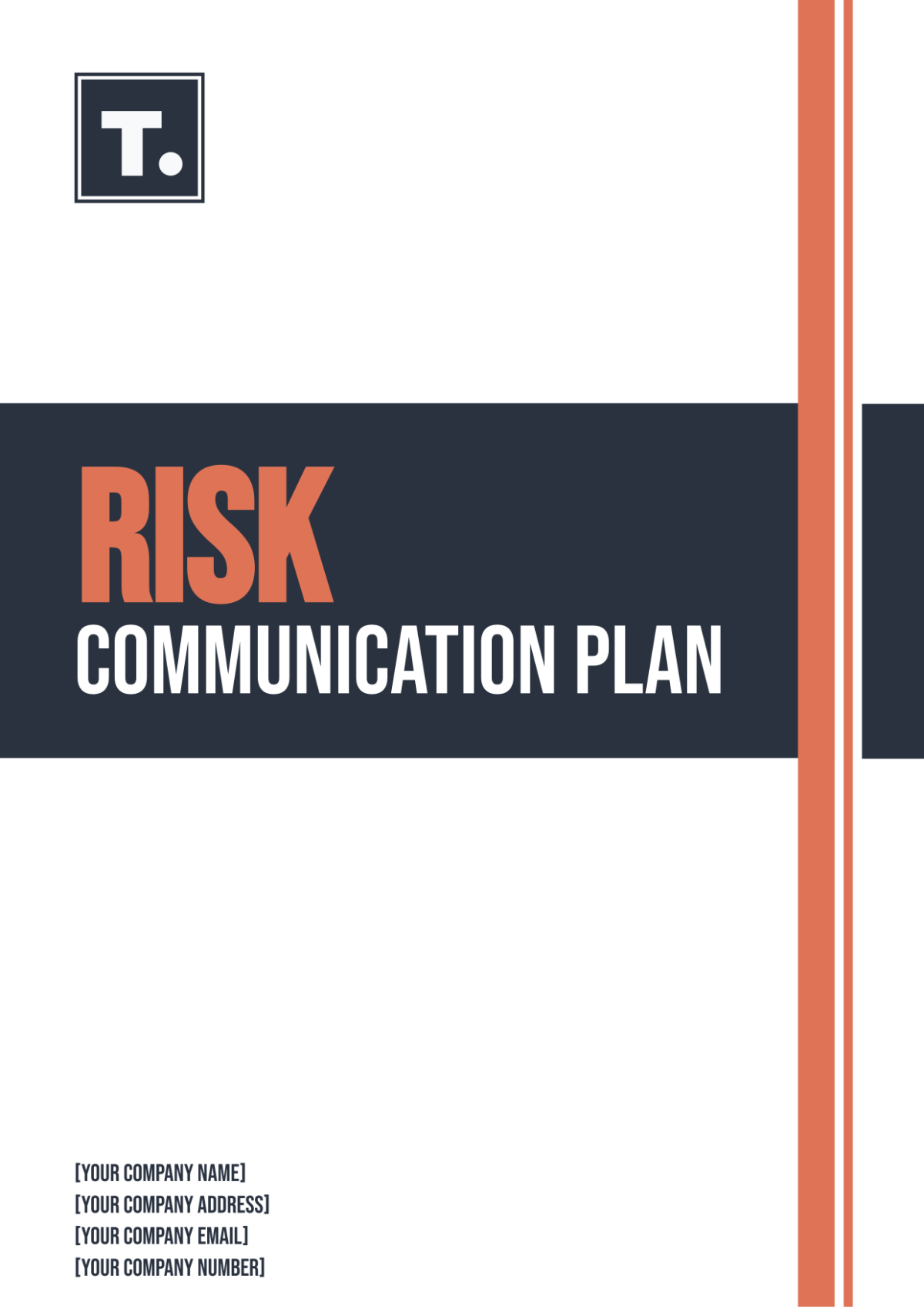
Prepared by: [Your Name]
I. Introduction
The Risk Communication Plan outlines [Your Company Name]'s strategy for effectively communicating risks to stakeholders. Its purpose is to ensure transparent and timely dissemination of information to maintain trust and manage potential impacts on operations and reputation.
II. Roles and Responsibilities
Role | Responsible Personnel | Function |
|---|---|---|
Risk Manager | [Name] | Oversees the implementation of the Risk Communication Plan. |
Communication Officer | [Name] | Drafts communication messages and coordinates distribution. |
Department Heads | [Names] | Serve as liaisons between employees and management for risk-related communication. |
III. Risk Identification and Assessment
A. Identified Risks
Cybersecurity threats
Supply chain disruptions
Natural disasters
B. Likelihood and Impact Assessment
High likelihood and moderate impact: Cybersecurity threats
Low likelihood and high impact: Natural disasters
IV. Communication Strategy
The organization's communication strategy is structured to ensure that messages pertaining to identified risks are aptly tailored to meet the needs and interests of stakeholders. For employees, regular updates are disseminated via email and the intranet, emphasizing actionable measures to mitigate risks, such as enhancing cybersecurity practices or preparing for potential supply chain disruptions. Detailed reports analyzing specific risks, along with recommendations for decision-making processes, are provided to management.
Stakeholders external to the organization receive summarized information through newsletters and updates, highlighting the organization's commitment to risk management and organizational resilience. Additionally, face-to-face meetings are utilized for in-depth discussions and to address any inquiries or concerns directly.
V. Communication Plan
Audience | Message Content | Communication Channel |
|---|---|---|
Employees | Update on cybersecurity measures | Email, Intranet |
Procedures in case of supply chain disruptions | Meetings | |
Management | Detailed analysis of cybersecurity threats | Reports |
Decision-making process for mitigating natural disasters | Meetings | |
Stakeholders | Summary of key risks and mitigation strategies | Newsletters, Updates |
Reassurance of organizational resilience | Press Releases |
VI. Monitoring and Feedback
The organization acknowledges the significance of continual monitoring of the effectiveness of its communication endeavors and the solicitation of feedback from stakeholders. Regular assessments will be conducted to gauge employee comprehension and engagement with communication materials, ensuring clarity, accessibility, and actionability of information.
Feedback mechanisms, such as surveys or suggestion boxes, will be established to foster open dialogue and gather insights into areas for improvement. Response to communication will also be evaluated during quarterly drills or simulations, allowing for an assessment of the plan's efficacy in real-world scenarios and facilitating necessary adjustments.
VII. Review and Revision
The Risk Communication Plan is designed to be dynamic and responsive to evolving risks and communication needs. Bi-annual reviews will be scheduled to assess the plan's performance, incorporating feedback from stakeholders and lessons learned from recent events or drills. These reviews will inform updates and revisions to the plan, ensuring its relevance, effectiveness, and alignment with organizational objectives. By maintaining flexibility and adaptability, the organization can enhance its communication capabilities and readiness to address emerging challenges proactively.
VIII. Conclusion
In conclusion, effective risk communication is integral to the organization's resilience and success. Through the implementation of a comprehensive communication strategy, active monitoring of its effectiveness, and vigilant review and revision of the approach, stakeholders can be informed, engaged, and prepared to respond to risks effectively. The organization's commitment to transparency, clarity, and continuous improvement fosters confidence in its ability to manage risks and navigate challenges with resilience.
- 100% Customizable, free editor
- Access 1 Million+ Templates, photo’s & graphics
- Download or share as a template
- Click and replace photos, graphics, text, backgrounds
- Resize, crop, AI write & more
- Access advanced editor
Proactively address uncertainties and mitigate potential threats with Template.net's Risk Communication Plan Template. Tailored for risk management professionals, it provides a framework for effective communication of risks and mitigation strategies. Customizable and downloadable, it facilitates clear and timely communication with stakeholders. With its printable format and compatibility in the AI Editor Tool, it empowers organizations to build resilience and trust through transparent risk communication.
